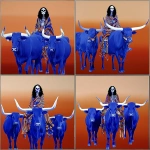Explore the Best AI Image Gallery

AI Art in Marketing: A New Canvas for Creativity and Controversy
The world of marketing is constantly evolving, seeking new and innovative ways to capture attention and connect with audiences. In recent years, the emergence of artificial intelligence (AI) has ushered in a seismic shift, particularly in the realm of creative content generation. AI-powered tools are now capable of producing stunningly realistic images, opening up exciting possibilities for marketers while simultaneously raising complex ethical questions.
The Creative Potential Unleashed
AI art generators have the potential to revolutionize marketing campaigns by offering a range of benefits:
- Cost-effectiveness: AI can significantly reduce the time and financial resources required for creating visual content compared to traditional methods.
- Speed and Efficiency: AI algorithms can generate multiple variations of images quickly, allowing marketers to iterate and refine concepts rapidly.
- Customization and Personalization: AI can create unique visuals tailored to specific target audiences, demographics, or even individual customer preferences.
- Novel Concepts and Ideas: AI can explore unconventional visual styles and generate unexpected imagery, pushing the boundaries of creativity.
Applications Across Marketing Landscapes
The versatility of AI art extends to various marketing applications:
- Advertising and Social Media: AI-generated images can create eye-catching visuals for ads, social media posts, and marketing collateral.
- Product Design and Visualization: Marketers can use AI to visualize product concepts and generate realistic mockups for presentations and customer feedback.
- Website and User Interface Design: AI can contribute to creating engaging website layouts and user interfaces with unique visuals.
- Content Marketing and Storytelling: AI-generated imagery can enhance blog posts, articles, and other content pieces, making them more visually appealing and impactful.
Navigating the Ethical Terrain
While the potential of AI art in marketing is undeniable, several ethical considerations require careful attention:
- Authenticity and Originality: The use of AI-generated images raises questions about authenticity and intellectual property rights. Its crucial to clearly distinguish between human-created and AI-generated content.
- Bias and Representation: AI algorithms can perpetuate existing biases present in the training data, potentially leading to unfair or stereotypical representations in marketing materials.
- Transparency and Disclosure: Marketers have an ethical obligation to be transparent about the use of AI in creating content and disclose when images are generated by artificial intelligence.
- Job Displacement: The increasing automation of creative tasks through AI may raise concerns about job displacement for human artists and designers.
The Future of AI Art in Marketing
As AI technology continues to advance, we can expect even more sophisticated and realistic AI-generated images. This will likely lead to:
- Increased Integration:** AI art tools will become increasingly integrated into marketing platforms and workflows, making it easier for marketers to leverage their capabilities.
- New Creative Frontiers: AI will continue to push the boundaries of creative expression, enabling marketers to explore novel visual concepts and storytelling techniques.
- Ethical Frameworks:** The industry will need to establish clear ethical guidelines and regulations for the responsible use of AI art in marketing.
The rise of AI art in marketing presents both exciting opportunities and complex challenges. By embracing its potential while addressing the ethical considerations, marketers can harness the power of AI to create innovative, engaging, and impactful campaigns that resonate with audiences in meaningful ways.



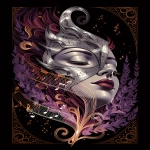
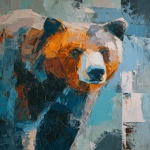


](https://images.ai-img.art/thumbnails/150/3f66200b1a7d200e2d5ec57b1ba9396c53f6a5adf00b12228e92ef33a127a643.webp)

](https://images.ai-img.art/thumbnails/150/da1b96f086142e5b963b45e87850f2e54052e64b2547b953d6e672f857c70983.webp)


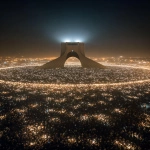
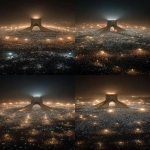
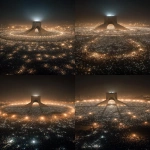
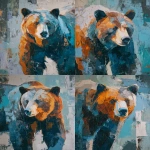
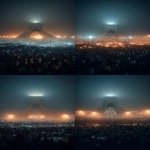
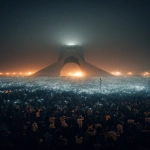


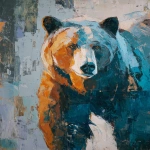
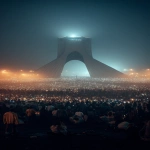
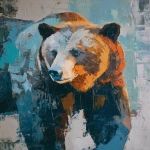
](https://images.ai-img.art/thumbnails/150/99bc047573dec087a846aea7d8f25f25730d536ef310ffb53d5c5f6cefe1bfac.webp)

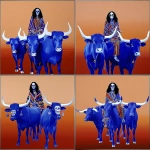
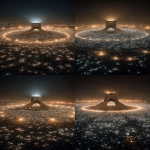


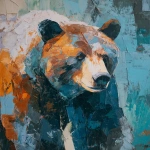

](https://images.ai-img.art/thumbnails/150/f5e636d5279cb83e912f9a07dfb31df83d56c73c2ff738d2e2b2291c46d75099.webp)

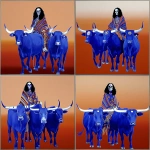
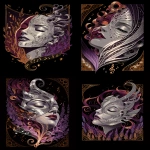

](https://images.ai-img.art/thumbnails/150/00b290d796713140a96e0c6ea47c6b48fce685ce0f6e88d13aeff0efddff3ef6.webp)
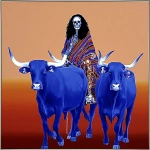


](https://images.ai-img.art/thumbnails/150/d4f221f590fe8f7bc904116c913ac3c968fc54e2f7d16be1ed4e4eee38106398.webp)
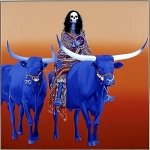
](https://images.ai-img.art/thumbnails/150/49b2045656114485ebab918ddb6e08f966bcfa29c558162f03aa9cfb3b4db753.webp)
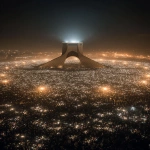
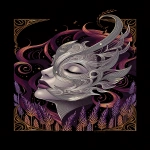

](https://images.ai-img.art/thumbnails/150/bf53be60bd2c95796a62f14ffd83fb6e77f5bacfc837720b1a939a80512ff33a.webp)


